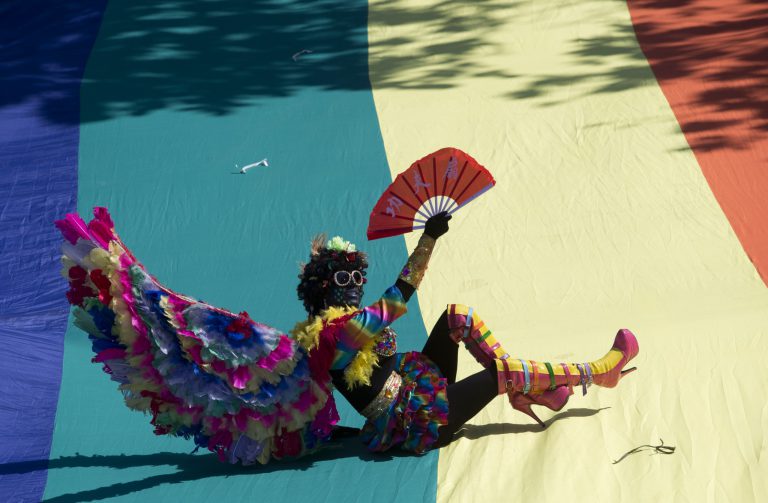
Beginning a course at university can be challenging, especially in an unfamiliar place. It’s difficult enough moving to another city; moving to another country or continent can be completely overwhelming. As international students are often a minority compared to home students, it is not uncommon for them to feel- and become- somewhat isolated.
Successful integration is challenging in itself; it is harder still for international students who belong to another minority group – namely LGBTQ students. The International Lesbian, Gay, Bisexual, Trans and Intersex Association (ILGA) compiled a report which lists 78 countries worldwide in which homosexuality is a criminal offence. There are 7 countries in which homosexual acts are legally punishable by death. Thus, it is little wonder that myriad LGBTQ people seek to leave such barbaric conditions behind to live and study in a more tolerant society.
The struggles faced by LGBTQ internationals are extremely complex. Most modernised universities now run both LGBTQ societies and international student societies- yet there are certain issues which cannot be handled if such groups remain distinct. The combination of being from abroad and identifying as LGBTQ can, for some, enhance an acute feeling of exile- a feeling which is detrimental to a fruitful, enjoyable learning experience. For many LGBTQ internationals, becoming comprehensively integrated into and comfortable at their chosen university is virtually impossible without an explicit offer of tailored support.
Thankfully, just such support is now available from a number of non-affiliated international organisations. ILGA is one such organisation; the UK’s Equality Challenge Unit, which estimates that there are 22,000 lesbian, gay or bisexual overseas students in the UK alone, also provides advice for students and staff. Yet reliance on these organisations can only go so far; there is a limit to the services they can offer to individual students. The provision of information and education on basic, transferable principles is a fantastic step forward to increase understanding, but it does not help when it comes to region-specific help and advice: where best to socialise, for example, as moving to a new country often makes finding LGBTQ bars, venues and associations difficult and daunting. There may also be concerns relating to problematic or provocative academic programmes or on-campus bullying. For this kind of personalised help, there should be support offered by universities themselves.
It is heartening to find that some institutions have made a special effort to cater for LGBTQ international students. The University of Michigan’s International Spectrum offers resources specifically for their overseas, LGBTQ attendees. Similar initiatives are seen at Cornell and UCSF. LSE also offer particular support for LGBTQ internationals, through their Student Union and LGBT Alliance. Notable in all these cases is the fact that not only is there support offered to the students in question; there is also explanatory literature available to all students and staff, meaning that a better standard of care can be cultivated across the university. The public exploration of issues such as confusion, segregation and frustration validates the experiences of those encountering such challenges. LGBTQ internationals can be confident not only that they are understood and accepted, but also that their peers can make informed efforts to provide support when necessary.
Unfortunately, while positive steps have evidently been taken at certain institutions, there is a serious dearth of universities which have made efforts to follow suit. The universities mentioned previously are located in London and the northern United States. Elsewhere in the States, UK, Europe and the world, there is very little provision for gay, bi, trans and questioning students from overseas- if any at all. This is hardly surprising in countries where homosexuality is banned by law- yet in a world where prominent UK figures are publicly mocked for their differences, even countries which supposedly support homosexuality can create startlingly unwelcome environments for LGBTQ internationals.
This is not to say that every single LGBTQ student from abroad faces trouble; some, enrolled across a variety of countries, are lucky enough to feel accepted and enjoy incredibly happy university experiences with little or no need of support. But this is sadly not true of everyone. Dedicated services for LGBTQ internationals should become a staple at the majority of HE institutions, not the minority.
This does not have to be a complicated or expensive measure: as is the case at LSE, efforts can be as simple as ensuring that LGBTQ or international societies demonstrate that LGBTQ internationals are welcome and celebrated. Action can range from social networking and advice to a public statement emphasising that LGBTQ internationals are part of an accepting and safe environment. Even such simple acts can go a long way towards reassuring students that their potential problems are not being left ignored, but are recognised and confronted seriously.
University is an opportunity for significant academic, social and personal growth. The years spent in higher education hugely contribute to a person’s understanding of the world- and of themselves. This is an experience that should be available to anyone, regardless of nationality, sexuality, gender, age, colour or creed. International students, LGBTQ students, and LGBTQ internationals all deserve the chance to thrive and make the most of their education. Staunch university support is required to make sure there is scope for every individual student to learn, grow and excel. As pillars of education and human development, universities must make an identifiable stand against nations in which people are still bullied, persecuted and killed for their sexuality.







